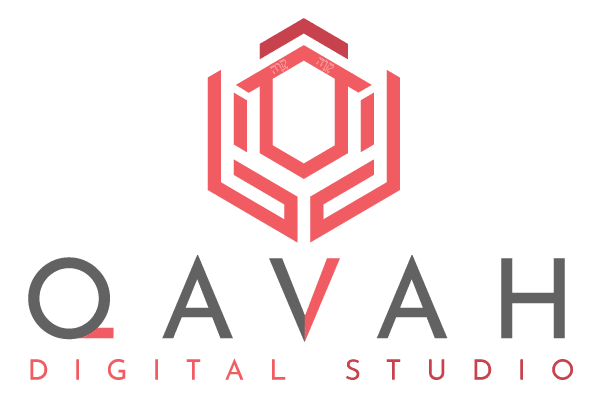SEO (Search Engine Optimization) has significantly evolved over the years with the integration of artificial intelligence (AI). Tools like ChatGPT, powered by AI, allow for the automation of tasks and optimization of various SEO strategies, making the work of digital marketing professionals much easier. In this article, we’ll explore the different ways you can leverage ChatGPT to improve your SEO.
What is ChatGPT?
ChatGPT is an advanced AI language model developed by OpenAI, designed to understand and generate human-like text. Based on the GPT (Generative Pre-trained Transformer) architecture, ChatGPT is capable of performing a wide range of tasks, from answering questions to generating articles, writing code, creating marketing content, and much more.
It uses deep learning techniques to predict the next word in a sequence, allowing it to produce coherent and contextually relevant responses. In the context of SEO, ChatGPT can be used to automate content creation, optimize technical aspects, and enhance overall strategy efficiency.
What is SEO?
SEO, or Search Engine Optimization, is the process of improving the visibility of a website or web page in search engine results. The goal of SEO is to drive organic (non-paid) traffic to a website by optimizing it for search engines like Google. SEO involves several techniques, including keyword research, content creation, backlink building, technical optimization, and user experience improvements.
By implementing SEO best practices, websites can rank higher in search results, making it easier for users to find relevant information and engage with the site.
Now, how does ChatGPT fit into this? As an AI-powered tool, ChatGPT can assist in various aspects of SEO, from generating optimized content to automating repetitive tasks. Below are some of the most effective ways ChatGPT can enhance your SEO efforts.
Powerful Ways to Use ChatGPT for SEO
1. Optimized Content Generation
ChatGPT is ideal for creating SEO-optimized content, such as blog posts, guides, product descriptions, and landing pages. You can provide specific keywords, and the model will generate fluent and optimized content that meets user needs and fulfills search engine requirements. ChatGPT generates extensive and relevant content, helping improve rankings in search engine results pages (SERPs).
2. Keyword Research
Although ChatGPT doesn’t replace advanced keyword research tools like SEMrush or Ahrefs, it can be a useful complement. You can ask it to generate synonyms or related terms for a specific keyword, as well as suggest long-tail keyword ideas. This allows you to diversify your keyword usage and cover a wider range of topics in your content.
3. Creation of Optimized Meta Descriptions and Titles
Meta descriptions and titles are essential for improving click-through rates (CTR). ChatGPT can generate multiple versions of meta descriptions that not only include key terms but are also compelling enough to grab the user’s attention. Similarly, it can suggest optimized titles, enhancing content performance in the SERPs.
4. Schema Markup Generation
Schema markup is a type of structured data that helps search engines better understand page content. ChatGPT can generate schema markup code (e.g., for articles, products, reviews, etc.), which you can then implement on your site to increase the chances of your content appearing in rich snippets and other special features in Google.
5. Hreflang Tag Generation
Hreflang tags are essential for multilingual websites, as they tell Google which version of a page to show users based on their language or location. ChatGPT can help you generate hreflang tags, ensuring that different versions of your content are well-optimized for SEO and that they don’t compete with each other in the search results.
6. Optimizing Existing Content
Outdated content can be updated with the help of ChatGPT. You can use it to add new sections, update statistics, or rephrase content to keep it relevant. This improves the performance of pages in the SERPs and helps you leverage existing content more effectively.
7. Generation of Titles and Headings (H1, H2, H3)
Titles and headings are essential both for structuring content and for SEO optimization. ChatGPT can generate optimized titles with relevant keywords, ensuring a clear structure that helps search engines better understand the content.
8. Generating Content Ideas
ChatGPT is a helpful tool for generating content ideas based on relevant topics. You can ask it to suggest themes related to your keywords, making it easier to plan long-term content strategies. This is particularly useful if you’re creating an editorial calendar or seeking new topics for your blog.
You may also be interested in: how do subdomains affect seo?
9. Creating FAQ Pages
FAQ pages help address common user questions and improve your site’s relevance in searches. ChatGPT can generate well-structured questions and answers optimized to enhance user experience and increase the chances of appearing in rich snippets.
10. Automating SEO Reports
ChatGPT can help automate the process of generating SEO reports. By asking it to summarize key performance metrics (such as traffic, backlinks, or keywords), you can obtain a report that helps you analyze the progress of your SEO strategy and make informed decisions.
11. Local SEO Optimization
Local SEO is essential for businesses that rely on specific geographic audiences. ChatGPT can help generate optimized descriptions for Google My Business, product or service listings, and articles focused on geo-targeted keywords.
12. Generating Social Media Content
While social media content doesn’t have a direct impact on SEO, it can drive traffic to your website. ChatGPT can create engaging social media posts that attract users, improving your site’s relevance and visibility in searches.
13. Creating Link Building Strategies
Link building remains one of the most important SEO strategies, and ChatGPT can help you write effective outreach emails or generate content that naturally attracts links from other sites. This process is crucial for improving domain authority and climbing higher in the rankings.
14. Improving User Experience (UX)
A good user experience (UX) is critical for SEO, as Google evaluates metrics like bounce rate and time spent on the site. ChatGPT can help you create more accessible and relevant content for users, improving interaction and site performance.
15. Generating Regular Expressions (RegEx)
For advanced SEO, regular expressions (RegEx) are useful for searching patterns within URLs, titles, or content. ChatGPT can generate and adjust RegEx to help you with technical tasks that require mass searches or pattern modifications.
16. Writing Outreach Emails
Outreach emails are essential for acquiring backlinks and building relationships with other sites. ChatGPT can generate persuasive and personalized emails that improve your link building campaigns, increasing the chances of obtaining quality links.
17. Optimizing for Featured Snippets
Featured snippets are quick answers that Google displays at the top of the search results. ChatGPT can help you write concise and well-structured answers, increasing the chances that your content will be selected to appear in these valuable snippets.
18. Creating Sitemaps Based on New Content
Although ChatGPT doesn’t generate sitemaps directly, it can suggest well-organized content structures. This facilitates the creation of XML sitemaps that Google can use to index pages more efficiently.
19. Competitor Analysis
Analyzing the competition is key to improving your SEO strategy. ChatGPT can compare your competitors’ content and suggest improvements, allowing you to create more optimized content and surpass your rivals in the rankings.
20. Creating Calls to Action (CTAs)
Calls to action (CTAs) are essential for improving conversions on your site. ChatGPT can write compelling and optimized CTAs, indirectly improving SEO by increasing interactions and reducing bounce rates.
21. Optimizing for Core Web Vitals
Although ChatGPT can’t directly adjust technical aspects of Core Web Vitals, it can suggest content improvements that contribute to better performance, such as optimizing images and reducing heavy elements that affect page load.
22. Customizing Content for Audiences
ChatGPT can help you customize content for different audiences, improving the site’s relevance and its ranking in search results. Well-tailored content to a specific audience increases the value of the page for both users and search engines.
23. Adjusting SEO-Friendly URLs
If you need to optimize your site’s URLs, ChatGPT can suggest SEO-friendly URLs that include the appropriate keywords, improving site structure and making navigation easier for both users and search engines.
24. Generating Interactive Content
Interactive content such as quizzes, surveys, or forms enhances user engagement and the time spent on the page. ChatGPT can generate this type of content, improving the user experience and, in turn, the site’s SEO.

FAQs: How to Use ChatGPT for SEO
1. How can ChatGPT improve my SEO strategy?
ChatGPT can generate content, research keywords, write meta descriptions, and perform technical optimization, among many other key tasks.
2. Is ChatGPT useful for keyword research?
Yes, it can generate variations and related terms that you can validate with SEO tools.
3. How can I use ChatGPT to write meta descriptions and titles?
ChatGPT generates concise and optimized versions that improve CTR.
4. Can ChatGPT help with technical SEO optimization?
Yes, including schema markup and hreflang tags, among others.
Conclusion
ChatGPT has proven to be a versatile and powerful tool for helping SEO professionals improve their strategies more efficiently. From generating optimized content to creating reports, ChatGPT allows for the automation of tasks and enhances strategic approaches with ideas and optimizations that improve performance in search engines. While it doesn’t replace advanced SEO-specific tools, it is an invaluable complement that accelerates processes and adds value in multiple areas. As it evolves, its integration into SEO will continue to offer innovative opportunities to improve website positioning and visibility.








